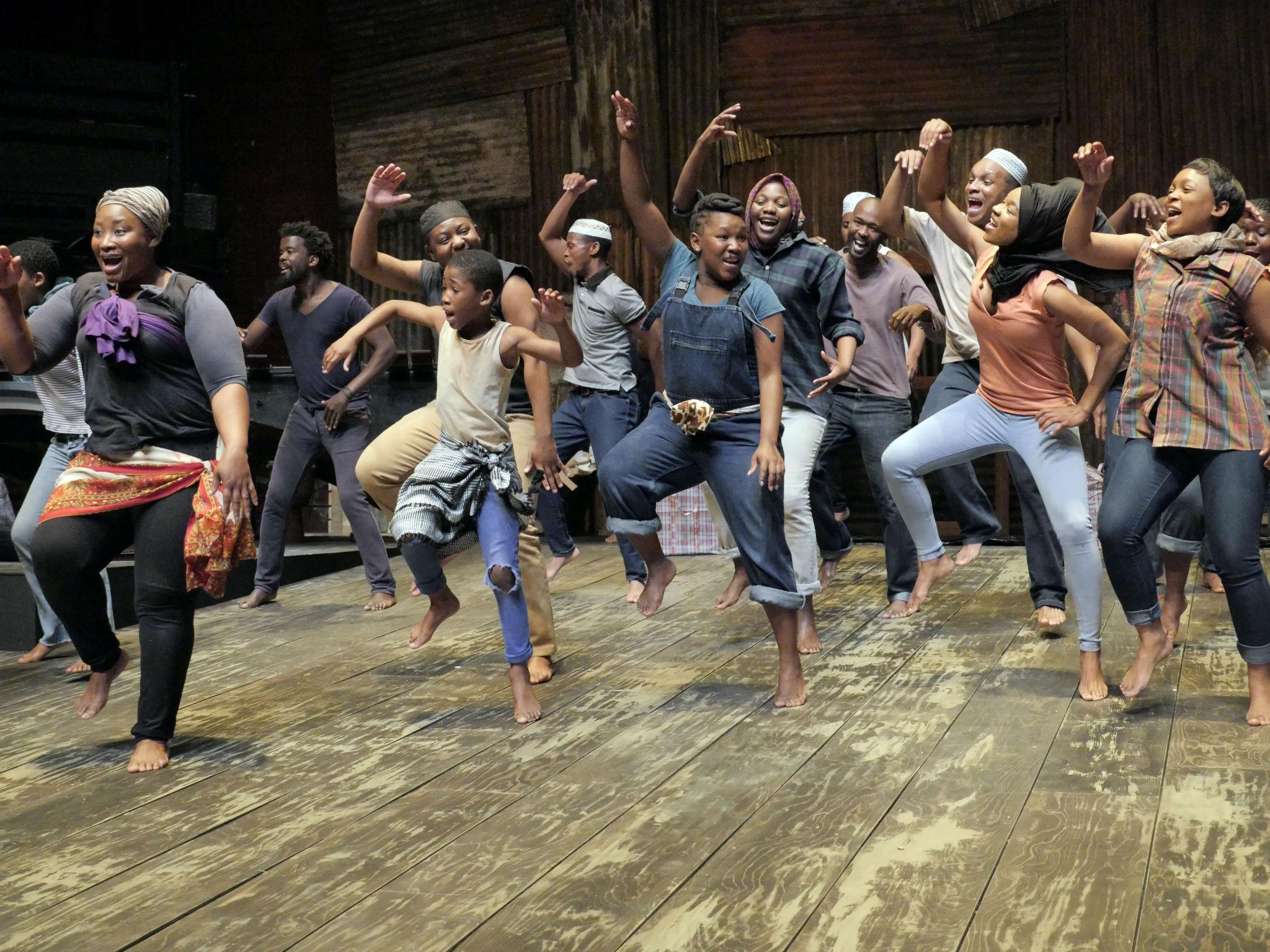A Man of Good Hope, Young Vic, London, review: ‘In troubled post-Brexit Britain, the show is an inspiration in its open-hearted resonant appeal for mutual respect and understanding’
The true story of a Somalian refugee's epic journey across Africa, brought to life with music from the Isango Ensemble

Your support helps us to tell the story
From reproductive rights to climate change to Big Tech, The Independent is on the ground when the story is developing. Whether it's investigating the financials of Elon Musk's pro-Trump PAC or producing our latest documentary, 'The A Word', which shines a light on the American women fighting for reproductive rights, we know how important it is to parse out the facts from the messaging.
At such a critical moment in US history, we need reporters on the ground. Your donation allows us to keep sending journalists to speak to both sides of the story.
The Independent is trusted by Americans across the entire political spectrum. And unlike many other quality news outlets, we choose not to lock Americans out of our reporting and analysis with paywalls. We believe quality journalism should be available to everyone, paid for by those who can afford it.
Your support makes all the difference.South Africa's glorious Isango Ensemble are breaking new ground with this piece – an international co-production that brings the Young Vic’s timely Horizons season of works focusing on the testimony of refugees to a profoundly stirring climax. The company is renowned for beautiful, roof-raising shows that reimagine Western classics in a local (often township) context – from The Magic Flute (Impempe Yomlingo) to The Ragged Trousered Philanthropists.
This latest piece, by contrast, is a musical adaptation of the 2014 book by Jonny Steinberg that recounts the author’s meetings with Asad Abdullah, a Somalian refugee who is so traumatised by the violent xenophobia he has encountered in democratic South Africa (which he had envisioned as the promised land) that he insists the interviews are conducted in Steinberg's car so that they can make a quick get-away from any approaching gangsters. The company therefore faces two kinds of challenge: how to convey, in stage musical terms, the restlessly episodic narrative of a person who’s been buffeted from one country and catastrophe to another since the age of eight when he witnessed his mother’s murder by militiamen from a rival clan in Somalia's civil war; and how to confront the anger and disillusion in post-Mandela South Africa in a way that combines honesty and hope.
Doors that have to be crawled through or climbed over or get slammed in the face are an eloquent recurring motif on the bare raked stage, with its rusty, corrugated-iron horizon, in Mark Dornford-May’s remarkably deft and fluent production. The grave eight-year-old Asad (played by the piercing Phielo Makitle at the performance I saw) evolves into the sparky youth (Zoleka Mpotsha) then the budding entrepreneur (Luvo Tamba) and finally the man scarred by his South African experiences (Ayanda Tikolo) who talks to Steinberg. Mandisi Dyantyis’s gorgeous score (part opera, part musical) is played on seven marimbas, a mallet-struck instrument that can sound, by turns, aggressive, bony and a-bubble with life. Perfect, then, for a saga in which terrible setbacks are met with dogged resilience.
I am not qualified to comment on how the music and dancing reflect the cultures of the many African countries Asad passes through. What I can say is that the choral work of this ensemble – a sublime tsunami of sound that you feel would shatter the most obdurate rock of bigotry – never stoops to supplying easy uplift. And that the background of its members, who are largely drawn from the townships around Cape Town, gives their perspective a powerful, pained immediacy as Asad gets caught up in the wave of blame against enterprising outsiders for stealing jobs and women and winds up once again with nothing when his shop is burned to ground.
Even if all the narrative problems have not been solved, the piece creates a lovely sense of connectedness, with Pauline Malefane lending her incomparably haunting soprano to the role of the cousin whose life the eight-year-old saved and who, when she unbearably has to leave him for the US, becomes a sort of internalised voice of encouragement. In troubled post-Brexit Britain, the show is an inspiration in its open-hearted resonant appeal for mutual respect and understanding and in the way it prefers truth of feeling to generalising sentimentality. Typical that it ends on this frank note. Poised half-way through the door that represents the threshold to the America, Asad tells Steinberg straight that the arduous journey has cost him too much to want to read the professor’s account of it when it is written. We should be grateful, however, to David Lan, the Young Vic's artistic director, for recommending the book to Isango.
Join our commenting forum
Join thought-provoking conversations, follow other Independent readers and see their replies
Comments